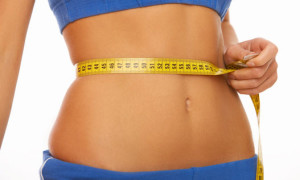Before starting a ketogenic diet, be sure to check with your doctor first. You need to know the main side effects of the keto diet before beginning a strict diet precisely. However, changing your eating habits can also have unwanted effects if you don’t know how your body will react. Some diets that are best for one person are not always suitable for another. Check it out below if you want to know the side effects of this popular diet.
Weight Gain After Stopping the Diet Plan

Probably notice significant weight loss in the first two to three months. Most of this is due to water loss. The first week is the most difficult; however, your body will slowly adapt to your new diet. One afternoon of cheating will do it. And before you know it, you have had a whole week of intensely large amounts of carbohydrates.
If you’re not careful, this can create a yo-yo pattern in weight changes that is stressful on your system. By simply changing your eating plan in this way, your metabolism may have difficulty adjusting, which often contributes to weight loss.
Cause Gut and Digestion Problems
So before you start a ketogenic diet, make sure it’s something you can stick to. First of all, make sure your ‘cheat days’ don’t turn into ‘cheat weeks.’ When you limit your carbohydrates, you eat fewer starches and whole grains. When you need to eat carbs, it is best to incorporate these types of “healthy fats” to promote an influential microbiome. Also, it is pretty standard for people to suffer from constipation or diarrhea during a keto diet due to the high fiber consumption.
Increase Vitamin and Mineral Deficiency Problem
Strict versions of the ketogenic diet limit the number of vegetables, fruits, and whole grains that can be consumed. Each of these foods is incredibly nutrient-dense, vitamin-rich, and full of antioxidants. If you severely limit your intake of fruit and vegetables, you may suffer from nutrient and vitamin deficiencies. For this reason, it is essential to talk to your doctor regularly to make sure your body is getting all the vital nutrients it needs. Consider taking a multivitamin or other supplement during a keto diet to reduce the risk of nutrient deficiencies.
Decreased Energy and Athletic Performance
In particular, athletes participating in high-intensity sports may not perform at their peak level for long periods. So if you participate in sports that require prolonged endurance, you should think twice about following a keto diet. It can significantly affect your performance, deplete your energy levels faster and cause fatigue.
Increase Risk of Heart Disease and Stroke
This can increase your risk of developing heart disease or suffering a stroke. Further research should find out more about how the keto diet affects heart health. Similarly, the body’s blood vessels may be adversely affected during a high-fat diet. However, it is not necessarily the fat itself that is the problem. If you are aware of this danger, you can continue a strict ketogenic diet even if you give up bags of crisps and chocolate bars every day. Excess bile due to fat consumption overloads the liver. If you repeatedly find yourself struggling with indigestion or bloating while on a ketogenic diet, it may be an indication that your body is unable to maintain it for long periods.
Higher Risk of Heart Disease and Stroke

Ultimately, if you have a history of pancreatitis or other acute conditions that are negatively affected by high fat intake, you should consider other dietary options. If left untreated, severe pancreatitis can damage the lungs, kidneys, heart, and other organs. As mentioned, it is essential to know your family history.
Again, it would help if you always talked to your doctor before starting a keto diet. If you consider a keto diet, it is essential to know more about the adverse side effects. Essentially, the main disadvantages of the diet are annoying if you have a history of liver problems. Genetics can also play an essential role in deciding whether it is an appropriate diet to follow.
